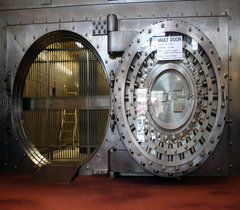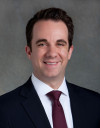Bankruptcy can be the end of a creditor’s attempts to collect a debt. Yet, often a bankruptcy creditor will work to take possession of collateral or to receive a distribution through the bankruptcy case. Since a bankruptcy filing triggers an automatic stay that requires strict adherence, it is important that a creditor work with a lawyer if it intends to pursue a claim in the bankruptcy case. Among the numerous options available to them, a bankruptcy creditor will often pursue the following:
Questioning a Debtor at the 341 Meeting of Creditors
The 341 meeting of creditors is usually scheduled about 30 days after the bankruptcy filing. While time is typically short for creditors to question the debtor, the 341 meeting of creditors is an opportunity for creditors to question the debtor under oath (or the debtor’s principal in a business case). The 341 meeting of creditors can be useful for a creditor to obtain time-critical information or to alert a bankruptcy trustee to issues in the case.
Conducting a 2004 Examination
Examining the debtor or a third-party related to a bankruptcy case is often best accomplished pursuant to Rule 2004 of the Federal Bankruptcy Rules of Procedure. Through a 2004 examination, a creditor can obtain documents or require that a party submit to a deposition-style examination. Requests under 2004 examinations can be very broad and are permissible even as “fishing expeditions.”
Filing a Proof of Claim
Where a party holds any right to payment, it may file a proof of claim in the bankruptcy case. In fact, in some chapters of bankruptcy, it is required that creditors file a proof of claim to be entitled to a distribution. Yet, a bankruptcy creditor should discuss filing a proof of claim with a lawyer. Proofs of claim require adherence to procedural rules. And, filing a proof of claim may submit a creditor to the Bankruptcy Court’s jurisdiction and cause the creditor to waive its right to a jury trial.
Denial of Discharge for a Bankruptcy Creditor’s Debt
Certain debts are non-dischargeable under the Bankruptcy Code. Generally, where a debtor has committed a fraudulent act or caused a willful and malicious injury, the Bankruptcy Court may determine that these claims are not discharged in the bankruptcy case. While are exceptions in certain circumstances, other types of typically non-dischargeable debts include specific types of tax debt, domestic support and child support claims, student loans, fines, penalties, and forfeitures.
Lifting the Bankruptcy Automatic Stay
A creditor can request that the Bankruptcy Court lift the automatic stay to, among other things, allow the bankruptcy creditor to continue pursuing litigation against a debtor or foreclose on collateral. In general, the automatic stay can be lifted for “cause”, or where the debtor does not have equity in certain property and it is not necessary to an effective reorganization. The Bankruptcy Court’s decision to lift the automatic stay is typically factually driven.
Of course, there are many other opportunities for a bankruptcy creditor to pursue its claim against a debtor. Creditors should consult with a lawyer regarding this issue to determine how best to proceed on a case-by-case basis.


